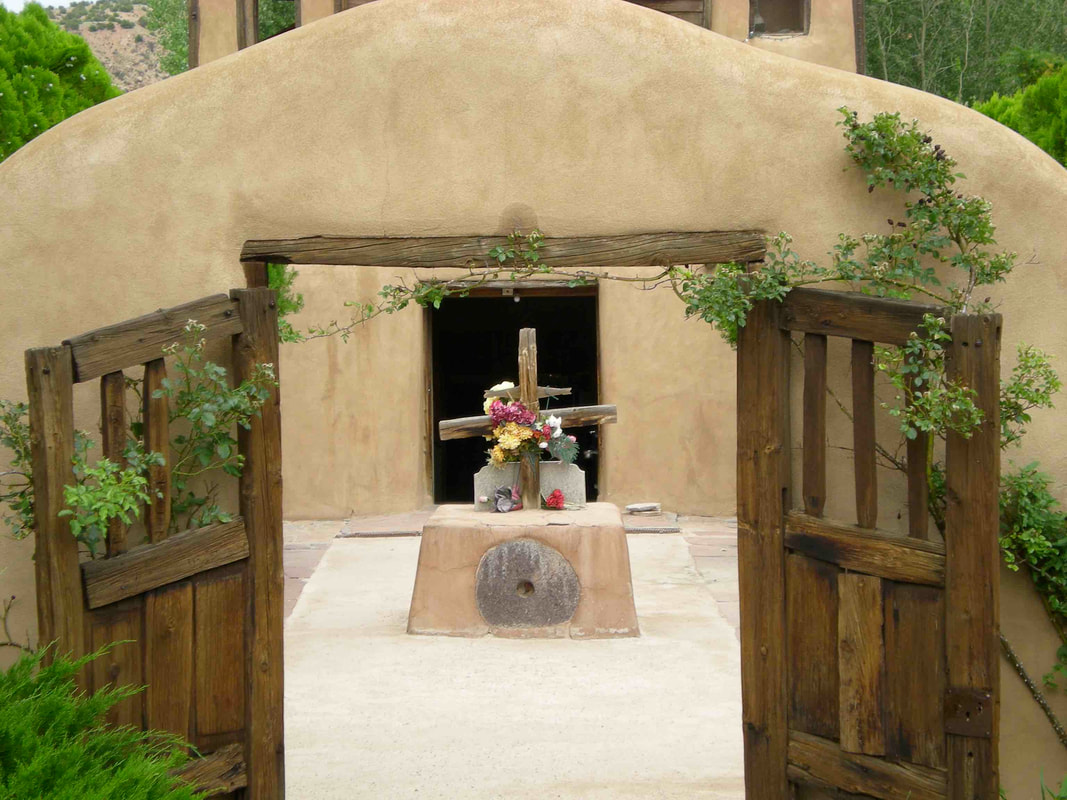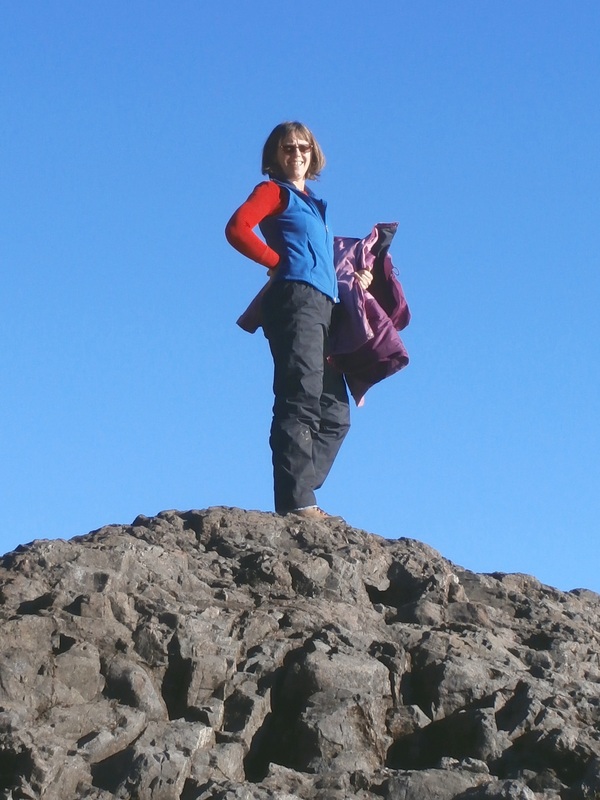|
Imagine yourself as Thomas in John’s Gospel. Jesus, the man you loved, the man you believed would save your people from oppression and tyranny, the man who inspired you to upend your entire life, to leave your home and family behind in order to follow him, is dead. The man you listened to and learned from for three years, the teacher you tried to understand and emulate, this one with whom you lived and travelled this beloved friend, leader, and brother was ripped from your midst, betrayed by another whom you also loved, a shock you’re still reeling from.
The drama began a few weeks ago when Jesus wanted to return to Jerusalem by way of Bethany where his friend Lazarus had died. The other disciples were worried because the Jews in Jerusalem had just tried to stone Jesus, and could easily do so again, and kill him. But you were bold and said, “Let us also go, that we may die with him,” though you never really expected that would happen. You thought everything would be okay. Jesus had evaded authorities and talked his way out of trouble before. You thought he’d do it again. But then, the night of the last dinner you shared together, Jesus who was dear to you, as dear if not more so, than your own twin brother, washed your feet as though he were your servant and said he was leaving with these words: “And if I go and prepare a place for you, I will come again and will take you to myself, so that where I am, there you may be also. And you know the way to the place where I am going.” But you didn’t understand what he meant and answered, “Lord, we do not know where you are going. How can we know the way?” His reply was another one of his all-too-frequent riddles: “I am the way, and the truth, and the life. No one comes to the Father except through me.” After dinner you and the others accompanied him to the garden so he could pray. He asked you to keep watch with him, but you fell asleep and woke up to soldiers and shouting. You drew a sword to protect your beloved leader, but he went with them without protest. Soon everything spun out of control: You scrambled to follow and were swallowed up in an angry mob separated from him. Later the crowds called for his execution and next thing you knew he stumbled up the road to the place of the skull, carrying the cross to which he was soon nailed, where he suffered and died. Perhaps you had the strength to stand alongside his mother and keep watch over your friend in those last agonizing hours of his life. Or perhaps you collapsed in a heap far from the scene and wept over what you knew was coming but couldn’t bear to witness. Whatever you did, the end was the same: Jesus died and left you flattened with grief, and with guilt—why didn’t you try to save him? You cannot fathom any purpose for your life now. Should you go back home and pick up your fishing nets, return to the family you left behind in Galilee? So much has changed in you over the three years you listened to Jesus as he taught and healed, offered hope to outcasts, even sent you and the others out in pairs to spread his message of hope, to invite others to follow. You doubt you can squeeze yourself back into your narrow old life, but how you can possibly carry on when your hope has been slayed and your heart shattered? For three days you stayed here in this locked room with the others. Some thought you were hiding, afraid of arrest by Jewish authorities, afraid you’d be thrown in jail for your association with this Jesus who was crucified for the crime of being King of the Jews. It’s true you were hiding, but it’s not the entire truth. Along with the fear, you were paralyzed by grief and guilt and confusion. You said you’d die with him, but you didn’t even defend him. He is dead and you bear some of the blame. How can you ever make things right? You woke a week ago to Mary Magdalene pounding on the door just after sunrise wild with despair saying Jesus’ body had been stolen. Peter and John went with her to the tomb and came back saying the stone had been rolled away and the linen strips he’d been shrouded in remained behind. None of you could make sense of that, and when, a little while later Mary Magdalene returned saying, “I have seen the Lord,” and told all of you about her encounter in the garden, you thought it was her imagination, wanting him so to return, that she conjured or dreamed him there. For he’d only been gone for three days and you, too, when you closed your eyes still saw Jesus, dreamed of him speaking to the twelve of you gathered around him at a table or a fire, his presence so vivid and comforting that in the first moments after you woke in the mornings, you opened your eyes and scanned the room, expecting to find him there among you. Soon after Mary left again, you left the house too, exhausted after days of confinement in the small house, worrying and mourning together, and then agitated and confused by the frantic conversations among your friends in response to Mary’s news: What had actually happened, what did it mean, what were you all supposed to do next? You walked stealthily through the city for several hours afterward, head bowed, slipping into shadows should you see anyone lest they recognize you as one of Jesus’ disciples, your mind a jumble of thoughts: Why hadn’t you stayed with the women to comfort them as they kept vigil near the tomb? Had soldiers been guarding the tomb? Had they rolled the stone away and carried Jesus’ body with them? And what about the grave clothes? Why would they have unwrapped and left them? It was only a few weeks before when you’d accompanied Jesus to Bethany, after he learned that his friend Lazarus had died. It’d been four days since Lazarus’ death when you arrived, and you’d watched as Jesus called him from the tomb, and Lazarus came stumbling out wrapped in linen strips. Once dead; now alive. It made no sense, but it’d happened. Jesus had made it happen. And if this is what had happened to Jesus, who had called him out of the tomb? Who, other than Jesus, could summon life from death? As you walked night began to fall, and though you’d set out to clear your head, you returned just as confused and to even more commotion. You knocked on the door, one of your friends furtively opened it, ushered you in, and bolted it behind you. Inside, your all friends turned to you and began blurting out the news: “Jesus was here.” “We have seen the lord.” “He lives.” “He appeared in this very room though the doors were locked.” “Twice he said: Peace be with you—He’s never greeted us like that before.” “And it was definitely him, because then he showed us the wounds on his hands, and side.” “He told us to go forth and forgive sins.” “He said, ‘Receive the Holy Spirit,’ and breathed on us.” “I’ve never felt like this before.” “It’s incredible.” The story tumbled from their mouths all at once, the way excited children tell of their discoveries. You asked yourself if Jesus had really been there? How was that possible? Did your friends see a ghost? Were they hallucinating?” You wanted to believe them, but, how could you? You’ve travelled with this crowd, and knew that they were no different than you—human, fallible, followers of Jesus lost without him. And if Jesus had somehow appeared to them from beyond the grave, you wanted with all your heart for him to do the impossible and appear to you, as well. Your friends finished speaking and looked to you for a response and all you could say was, “Before I can believe, I need to experience it for myself… I need to see the mark of the nails in his hands, and put my finger in the mark of the nails and my hand in his side." Centuries from now when the mystery of Jesus’ disappearance from the grave has been solved and named the Resurrection and has become the account in the Christian scriptures upon which our entire religion hinges, and the celebration of Easter has spread across the globe, Christians will still give you a bad rap for being hard hearted, dubbing you “Doubting Thomas”—although some interpreters will spread the blame a little and criticize the disciples for being such lackluster evangelists, that they couldn’t even convince one of their closest friends. In the far future, some will wonder why all of you kept hiding in a locked room after Mary shared her incredible news, not understanding that you all were frightened of the religious authorities, and the state, and distraught over Jesus’ death. You will want to tell them to think about their own lives, those moments of profound grief, or even joy, when change topples the old life, strips you raw, and you don’t know what comes next. You will want to remind them that though they might recognize something profound and life-altering is taking place when it happens, rarely do any of us understand the meaning of such events as they are happening. Meaning making emerges as we live into the hidden beyond of such moments and integrate this new reality into our daily existence. It takes time to develop perspective to understand the significance of events that have shaped our futures and illuminated our pasts. Thomas, your reaction is completely human. For you, the rising is still a rumor, but your response is a sign of faith. Wrestling with doubt is a sign of your desire to believe and for that belief to emerge from your own experience and understanding, not from hearsay, or by adopting the experience of your friends when it is not your own, but by finding something you can grasp onto that will bring your toward belief. It seems natural to ask for the same appearance and signs your friends received—the sight of Jesus and his wounds, his presence with you—because literally, while you were out of the room, the rules about everything changed. A week later, you are gathered with your friends in that same house, doors still locked, everyone still huddling together trying to figure out what comes next. For the second time, Jesus walks through closed doors and appears in this place, before his closest friends, including you this time. "Peace be with you,” Jesus says to everyone. Then he turns to you and speaks as though he’d heard what you said a week ago, "Put your finger here and see my hands. Reach out your hand and put it in my side. Do not doubt but believe." You take a breath and all your wrestling and doubt vanish. At the first sight of Jesus and at sound of his voice, you recognize your beloved master standing before you, his features familiar, though his body has defied time and space and death. He still bears the wounds of persecution, but you do not have to touch them or him to believe—though soon you will embrace. Your questioning has led to complete and utter faith. Here is Jesus no longer dead, but risen, capable of all things beyond your understanding, and you drop to your knees in a sweet flood of relief, surrender, and hope, uttering the words you now know to be true: “My Lord and my God!” You are the first person to name the significance of the Risen Lord, you are the first one, who after seeing Jesus resurrected, understands just what he has encountered, the one who can now help the other disciples interpret history in the making and encourage them into boldness of their own. To your declaration Jesus responds: "Have you believed because you have seen me? Blessed are those who have not seen and yet have come to believe." In the future, some might hear these words as a rebuke of you, implying that you should’ve believed the disciples when they first told you. But as John writes his gospel, his intent is not to use Jesus’ words to criticize you, but rather to offer hope to the early church that would form in the next decades, to record this sign and wonder, one of many they would not see in person, so that they might also believe. John didn’t know what the future would hold. Couldn’t know that the saving message of Christ would spread throughout a world much vaster than any of them had ever imagined. John couldn’t know that the Resurrection was the beginning of time as we mark it. Jesus’ blessing of those who believe without seeing doesn't negate those who believe because they see. Here in the year of our Lord two thousand nineteen, we have only to look at the journey of saints and mystics, religious leaders, and everyday believers across the centuries whose faith allows us to see Christ alive in the world. When we embrace the mystery of the risen Christ, when we follow Thomas’ example, then our fears, worries, questions, and grief can shift inside us and become the underpinnings of faith as we begin to trust in what once seemed impossible. In our un-doubting, comes our blessing: Blessed are we who live on the far side of the Resurrection. Blessed are we with centuries of the faithful traveling before us. Blessed are we who have been breathed on by the Holy Spirit. Blessed are we who are searching and questioning. Blessed are we, who like Thomas, who both see and believe. As we receive and respond to that blessing, may we become bearers of light, the embodiment of God’s love for others in this time and this place. May we, even in all our shortcomings become the hands and feet of Christ, our dear Savior whose horrific death was redeemed; whose rising has made all things new.
0 Comments
Your comment will be posted after it is approved.
Leave a Reply. |
I began blogging about "This or Something Better" in 2011 when my husband and I were discerning what came next in our lives, which turned out to be relocating to Puget Sound from our Native California. My older posts can be found here.
Categories
All
Archives
September 2023
Newsletters |


